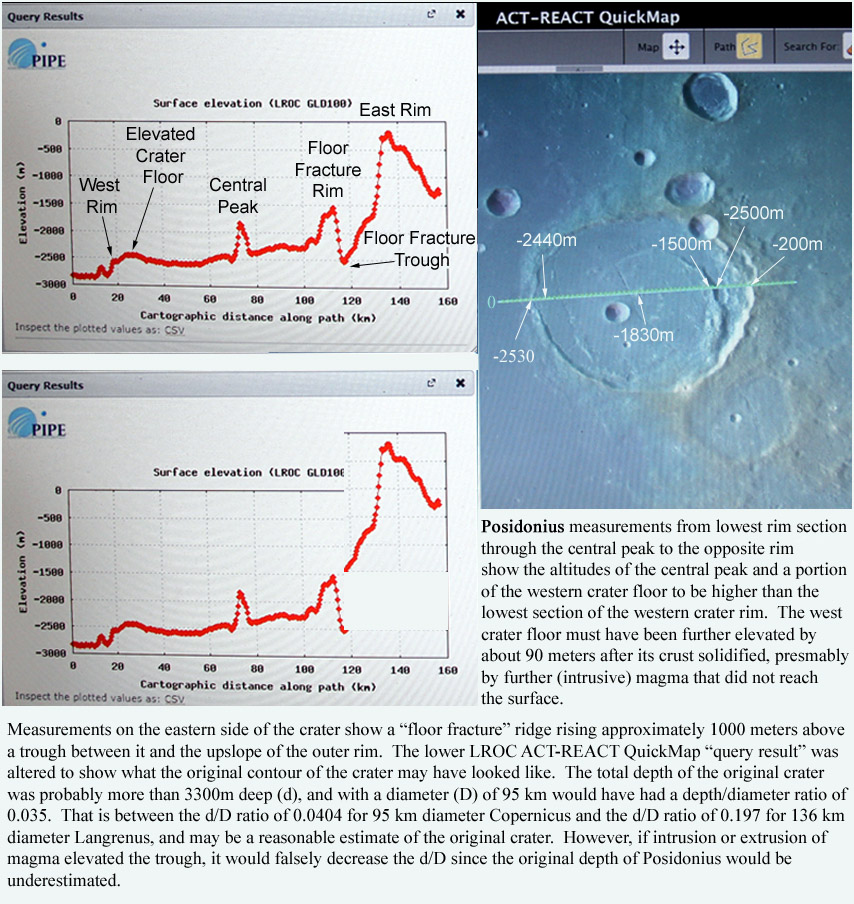Difference between revisions of "July 23, 2012"
| Line 6: | Line 6: | ||
<em>image and text by [mailto:howardeskildsen@msn.com Howard Eskildsen], Ocala, Florida</em><br /> | <em>image and text by [mailto:howardeskildsen@msn.com Howard Eskildsen], Ocala, Florida</em><br /> | ||
<br /> | <br /> | ||
| − | CAW Note: There aren't many ways to elevate a crater rim once it is formed, but gravity pulls rim segments down, producing slumps and terraces. | + | CAW Note: There aren't many ways to elevate a crater rim once it is formed, but gravity pulls rim segments down, producing slumps and terraces. |
| − | So another way the east wall and mega-terrace could be reconstructed would be to move the terrace block upward and eastward to where it may | + | So another way the east wall and mega-terrace could be reconstructed would be to move the terrace block upward and eastward to where it may |
| − | have come from. | + | have come from. |
| − | Posidonius formed on the edge of an impact basin so tilted inward from the beginning. <br /> | + | Posidonius formed on the edge of an impact basin so tilted inward from the beginning. |
| + | <br /> | ||
<br /> | <br /> | ||
<strong>Related Links</strong><br /> | <strong>Related Links</strong><br /> | ||
Revision as of 13:51, 14 March 2015
Measure And Learn

image and text by Howard Eskildsen, Ocala, Florida
CAW Note: There aren't many ways to elevate a crater rim once it is formed, but gravity pulls rim segments down, producing slumps and terraces.
So another way the east wall and mega-terrace could be reconstructed would be to move the terrace block upward and eastward to where it may
have come from.
Posidonius formed on the edge of an impact basin so tilted inward from the beginning.
Related Links
Rükl plate 14
Yesterday's LPOD: Been There, Done That
Tomorrow's LPOD: Another Leaf On the Moon*
COMMENTS?
Register, Log in, and join in the comments.



